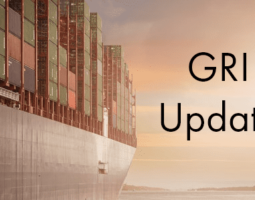ILA Threatens Strike May be Imminent Along US East and Gulf Goasts
While it is still too early to predict, some say it is growing increasingly likely that the International Longshoremen’s Association (ILA) members will strike at all Atlantic and Gulf Coast ports after their contract expires on September 30, 2024. The strike would begin on October 1, 2024, the day after the expiration of the current agreement.
While the ILA had been in negotiations for the past two years with the United States Maritime Alliance (USMX) on a new six-year contract, ILA President Harold Dagget is losing confidence in an acceptable resolution before the current contract lapses. Negotiations are currently stalled after the ILA broke off talks in June due to a dispute over automation projects by Maersk at the Port of Mobile.
The USMX announced its continued willingness to resume negotiations as soon as the ILA is ready. In a statement, the USMX said it is committed to keeping details of negotiations out of the public but expressed commitment to finding an agreement and avoiding a strike.
“As we have done in the past and in respect of the process, USMX remains steadfast in our commitment to keep ongoing negotiations out of the press until bargaining is complete. We would like to reassure our customers and the public that there is forward movement toward resolution of the local issues that are currently being reported through the media,” the USMX said in its statement. “To avoid any further disruption to the cargo flow and/or damage to our nation’s economy, USMX remains ready, willing, and able to return to the bargaining table with the ILA to resume Master Contract negotiations and to reach a new Master Contract agreement.”
Chief among the ILA’s concerns are ongoing job security and equitable wages. Dagget has accused Maersk of using automation projects at multiple ports that employ ILA members, including an auto-gate at the APM Mobile container terminal. Automation is a major sticking point for the ILA as they fear it will take away human jobs moving forward.
Dagget also cited fair wages as another key point of contention. The ILA feels that ocean carriers and terminal operators have continued to see profits rise after the COVID-19 pandemic, and the longshoremen haven’t seen an equal increase in their wages.
The ILA hasn’t had a strike since 1977 but appear ready to take that action if they don’t find an agreeable contract with the USMX. A strike could lead to potential delays, congestion, or limited transport availability.
Further delays or congestion would only add to any existing supply chain disruptions. US ports already did not grade well in the most recent version of the Container Port Performance Index (CPPI), developed annually by the World Bank and S&P Global Market Intelligence. The CPPI measures factors such as number of calls, vessel sizes and duration of port stay to measure efficiency of 405 container ports around the world.
Asian ports dominated the rankings, with East and Southeast Asian ports accounting for 13 of the top 20 places. The top-ranked US port didn’t even crack the top-50, as Charlotte was ranked at number 53 and Philadelphia was 55. Overall, only eight US ports made the top 100 of the CPPI rankings.
While we still think it’s too early to officially predict, it is not too early to start developing any contingency plans. If one were to assume a strike would happen, many shippers will start to look at the USWC and/or Candian ports as new options. This means potential for congestion, etc. at these ports as they take a surge in volume that was historically reserved for USEC and USGC ports.
Scarbrough will continue to monitor the situation and work with our customers to ease the situation if a strike does indeed happen. If you have questions or need clarification, please reach out to your Scarbrough representative.
